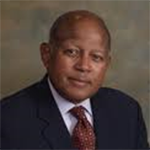
By Michael A. LeNoir, M.D.
Good health should be on minds of everyone, especially African Americans, at the beginning of this New Year. Whether we contemplate our access to adequate health care coverage or make a conscience effort to lose weight and get into better physical shape, there are stark factors that we should all consider. Of the ten leading causes of death for African Americans, as reported by the Center for Disease Control (CDC), we, as individuals, can influence, and often prevent, a number of these problems; primarily heart disease, stroke, diabetes, kidney disease and chronic respiratory disease. How? Basic, good health relies on the often-used terms; proper diet, good nutrition and regular exercise. And as a physician, I would also add frequent check ups.
Clearly diet and exercise are always part of everyone’s effort to get healthy. But, it’s critical to know what’s important about diets and which exercises are best for your particular age and stage in life. In addition, as important as your commitment to be more active and eating right may be, it is just as important that you have a good health care provider for regular checkups and screenings.
Diet: There are a lot of diets out there. There are low carbohydrate diets, protein diets, rice diets, water diets, etc. Many turn out to be nothing more than “fads.” You can find almost any type of diet you want. However, the biggest elements contributing to successful diets include portion control, carbohydrate reduction, and increases in the amount of fruit and vegetables that you consume. Counting calories helps if you know what serving size means. When you see something is “150 calories” in a can or on a box, this means for “one serving.” Count the calories right. Also, recent studies suggest that over-the-counter weight reduction products are of limited value.
Exercise: Regular exercise is great for weight control, but not always for weight reduction. If you have one piece of pie that’s 500 calories, it will take you approximately two hours on an elliptical machine or treadmill to work off just those calories alone. Exercise should be geared to your age and stage. Over-exercising initially can lead to heart attack and stroke if you are really out of shape. You should have a conference with a professional trainer to ascertain what your goals are for your exercise program. You should be given proper, professional instruction on how to perform those exercises that will appropriately give you the best chance of doing things right and effectively, with the desired outcomes.
Checkups and Screenings: Most of us hate to go to the doctor. Even doctors hate going to the doctor. But going to your healthcare provider on a regular basis is critical to any new approach to health and fitness. It may not be necessary to go once a year when you’re young, but it may be a good idea because it focuses you on making regular visits. Don’t go around your birthday if it makes you too anxious, but keep in mind a set date for regular visits.
In many studies that show that African Americans have problems with health issues that other ethnic groups don’t have, it appears that too often we look at symptoms; seek care too late; and have no regular periodic schedule. Men over 40 probably need a PSA on a regular basis, along with an EKG. If you smoke, perhaps you need an evaluation of your lungs. Women over 40 need regular breast exams and lung exams, if they smoke. Regardless of what the literature says, PAP smears and assessments of bone density are critical. There are other tests and screenings as well but the key point is that everyone should make that all-important “visit to the doctor.”
For 2014 to be a great year, we all should become more serious about our health.
Michael A. LeNoir, M.D. is president of the National Medical Association. Dr. LeNoir is one of the top clinical allergists and pediatricians practicing in the San Francisco Bay area. Founded in 1895, the National Medical Association (NMA) is the nation’s oldest and largest medical association representing the interests of more than 35,000 African American physicians and their patients.












